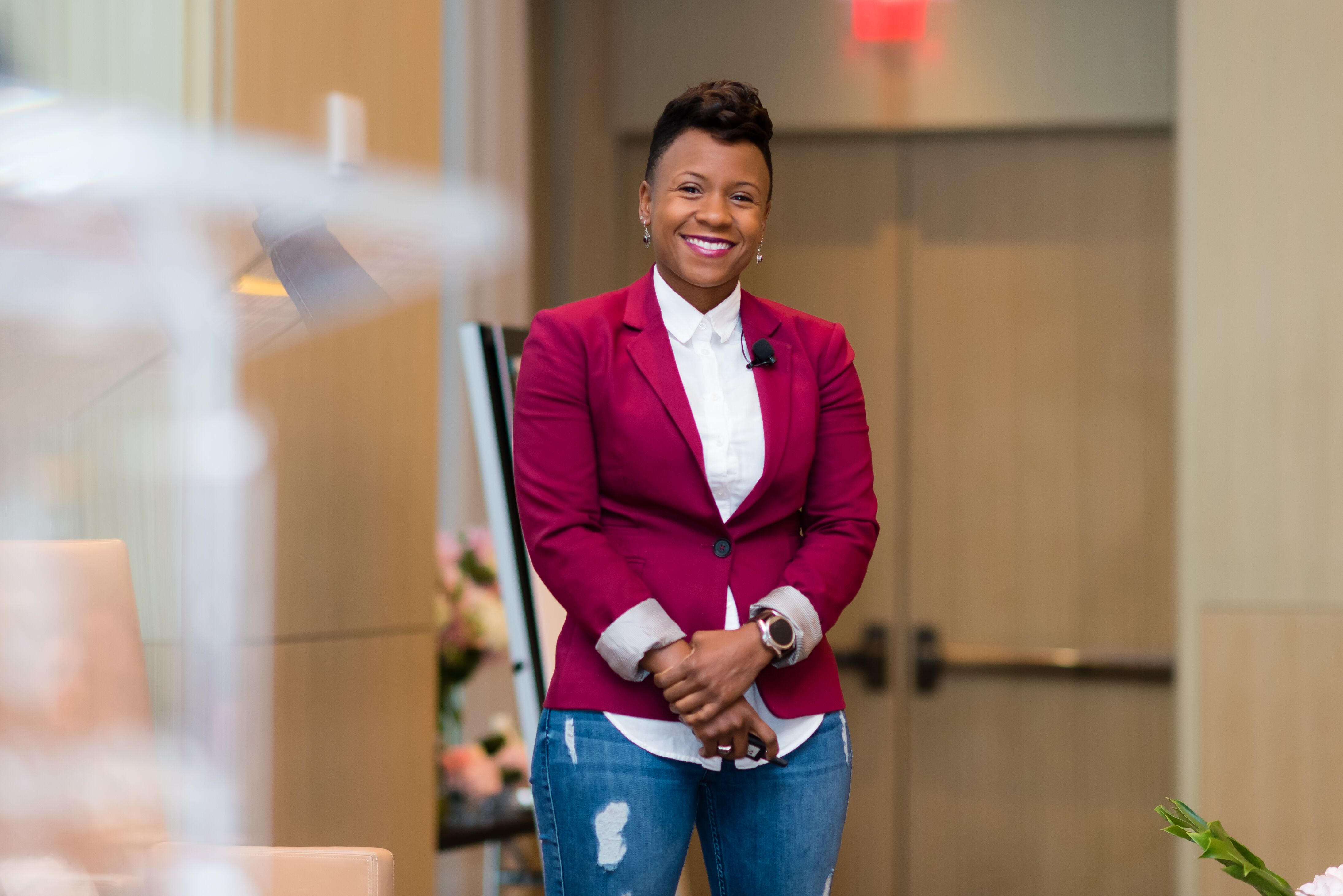Eliminating Unconscious Bias in Hiring: How One Female Tech CEO is Shaking Things Up
June 24, 2019
By Julie Bos, ECMC Foundation Contributing Writer

Contrary to popular thought, having the right degrees, skills and work experience doesn’t guarantee your dream job.
That reality was a hard pill to swallow for Stephanie Lampkin, an African American woman who grew up on welfare, learned to code software at age 13, and went on to become founder & CEO of Blendoor.
Despite having a highly impressive resume—including a bachelor’s degree from Stanford University, work experience at Microsoft and an MBA from MIT—Stephanie still struggled to find the employment and career advancement opportunities she sought.
She’s not alone in her struggle. Although the tech industry has spent $1.2 billion on diversity hiring and retention in the past five years , according to the Silicon Valley Business Journal, this has resulted in a mere 1% increase in female hires and virtually no increase in racial diversity. Stephanie believes the challenge is unconscious bias in the workplace, particularly in the technology sector.
It was during Stephanie’s five years at Microsoft that she felt the sting of workplace bias.
“Microsoft was one of the first places where I saw that it was less about the color of my skin, and more about my gender,” she said. “I would see African American male managers moving up within the company, but I was being overlooked [by management]. Ultimately I realized that I wasn’t going to be able to climb the ladder without getting the same level of mentorship that I saw other peers getting. Instead of staying, I decided to further my education and get an MBA.”
More education, it turns out, didn’t solve the problem. After MIT, Stephanie faced the same struggle while pursuing a position at Google. Stephanie’s resume quickly sailed through all the preliminary screens and she made it to the final round of interviews. But ultimately, Stephanie was told she wasn’t technical enough—and instead, would be considered for a future role in sales or marketing.
This unfortunately wasn’t new to Stephanie. When she was younger, she watched female family members suffer from similar career barriers.
“I watched my mom and four aunts—all of whom were college-educated—also struggle to move up in their careers,” said Stephanie. “Most of them ended up quitting corporate America at the height of their careers to start their own companies because they recognized that they simply weren’t being given opportunities to advance and succeed. That really inspired my entrepreneurial motivation.”
Not willing to merely sit back and accept the status quo, Stephanie decided to use her IT expertise to help others.
Program Highlights
ECMC Foundation invested $150,000 to help Blendoor build out and scale its enterprise solution that matches diverse job seekers with job opportunities.
Blendoor’s enterprise model was piloted with Salesforce’s university recruiting team and demonstrated strong preliminary results. The data showed implementing Blendoor resulted in a 1.5x increase in women hires and a 6x increase in diverse hires.
In 2016, she founded Blendoor, a talent marketplace and hiring platform for companies seeking diverse candidates. The platform uses artificial intelligence and machine learning to match diverse job seekers to job openings while removing potentially biasing information.
Resumes in Blendoor’s system are redacted of personal data and anonymized, so that hiring managers only see skills, past work and educational experiences. A scale is prominently displayed on the site at all times that shows hiring managers the diversity breakdown of the candidates they intend to screen and interview, and notifies them if and when diverse candidates fall out of the hiring funnel.
Today, with support from the Education Innovation Ventures (EIV) program at ECMC Foundation, Blendoor is pivoting away from its original talent marketplace products and building an enterprise solution that’s delivered via Software as a Service (SaaS) or subscription model. The enterprise solution will continue to connect a marketplace of talent from diverse backgrounds with employers, but will do so by integrating with a company’s applicant tracking system.
The program-related investment (PRI) from EIV helps expand Blendoor’s impact, and is consistent with ECMC Foundation’s mission of improving pathways to careers for underserved populations.
“I hope that eventually Blendoor can be used and replicated in other mediums outside of hiring—anything related to people,” she said. “It could impact decisions about choosing AirBnB guests, which medications get prescribed to whom, and even how to find dates, roommates and travel partners. If Blendoor could be a major catalyst in that change, I would die a happy person.”
